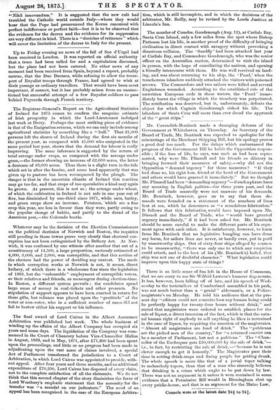Whatever may be the decision of the ElectiOn Commissioners on
the political destinies of Norwich and Boston, the inquiries .still pending in those towns prove very clearly that electoral cor- ruption has not been extinguished by the Bribery Act. At Nor- wich, it was confessed by one witness after another that out of a -constituency of 14,500, a large proportion, variously estimated at 4,000, 3,000, and 2,000, was corruptible, and that this section of the electors had the power of deciding any contest. The mode in which corruption works at Norwich is not, it seems, direct bribery, of which there is a wholesome fear since the legislation -of 1868, but the "colourable " employment of corruptible voters, or their relatives and friends, as messengers during election-time. In Boston, a different system prevails ; the candidates spend large sums of money in coal-tickets and other presents. No stipulation of support appears to have been exacted in return for these gifts, but reliance was placed upon the "gratitude" of the Toter or non-voter, who in a sufficient number of cases did not fail to bestow either his support or his influence.






























 Previous page
Previous page